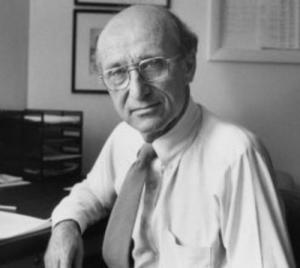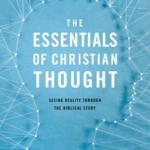Background to Essentials of Christian Thought
Some of you are reading my book Essentials of Christian Thought and some of you aren’t. I hope both groups will engage in the book discussion, although those of you not reading the book are urged to ask questions and not make comments (about the contents of the book).
Here I want to explain the “long background” of the book.
For many years, while teaching at three Christian universities, I wanted to write a book about the “faith” part of the “integration of faith and learning”—a project close to the hearts of most Christian colleges and universities (at least in the U.S.).
My first “encounter” with the project was with three Christian authors: Francis Schaeffer, James Sire, and Arthur Holmes. All three wrote books about the project even thought the specific phrase “faith-learning integration” was used mainly by Wheaton College philosophy professor Holmes.
I read books by all three of them and liked and disliked some things in each one. But I learned much from them and was enriched by reading them. Sire popularized the idea of faith-learning integration and the meaning of “the Christian worldview” in books like Discipleship of the Mind and The Worldview Next Door. Holmes wrote a few books specifically about the subject and the project including Contours of a Worldview.
At Bethel College (now Bethel University) I sat through many faculty workshops and seminars about the project or task of integrating Christian faith with the various disciplines taught there. I was sorely disappointed in most of them. I felt that the presenters presented the topic in a way guaranteed to stir up controversy. And they usually fell short of explaining the “faith” part of the project as cognitive and having settled content.
So I began writing my own book about the faith part of faith-learning integration. I had two or three chapters written and “shopped” the book to evangelical Christian publishers. I remember making many appointments to talk to the lead editor at Eerdmans (now retired and I won’t name him here) at an annual meeting of the AAR/SBL in Washington, D.C. I waited and waited at our many appointment times and he never showed up. I was then not very well known. I happened to sit with him in a limousine on the ride to the airport after the convention. It was purely accidental. He acted like he didn’t know who I was even though I have made many appointments with him during the meeting. I spent most of the convention (Friday through Monday) waiting to talk to him at arranged meetings. (Arranged with his assistants at the Eerdmans booth in the book display “room”).
I finally sent him the chapters and my proposal for the book and never heard back from him.
I put the book project on hold for a few years. Then I blogged here about faith-learning integration and how it should actually “work” why so many presentations about it were misleading and confusing. I laid out my vision of the “faith” side of “faith-learning integration” here and heard from one of my publishers. (By then I was quite well known in the evangelical academic community because of my many well-received and even award-winning books.)
Zondervan asked me to write a book based on my blog posts here about integration of faith and learning. I agreed and settled on a tentative title: Biblical Narrative Metaphysics. Of course, eventually the publisher (HarperCollins) changed the title for marketing purposes.
My dream for the book was that evangelical college and university administrators would use it for their faith-learning integration faculty workshops and etc. I doubt that has come to fruition and I blame that partly on the bland title. What puzzles me, though, is why more potential buyers and readers of the book don’t notice the recommendations by Stanley Hauerwas (who I consider a friend) and Alister McGrath (also a friend). In some ways the book is my magnum opus—not in terms of length but in terms of importance.
My experience teaching in three Christian universities over almost forty years is that very many faculty members have no real idea what the “faith” part of faith-learning integration is or should be.
Some of my colleagues have told me right out, very bluntly, that they do not believer there IS any biblical-Christian worldview. Some were just outright cultural relativists and religious pluralists. One talked openly at a faculty meeting about “Hindu Christianity” or “Christian Hinduism.” Syncretism is what he was talking about and I recognized that; I’m not sure how many of my colleagues did. Others told me in no uncertain terms that there is no universal, trans-cultural Christian view of reality.
When I began writing this book I remembered my Rice University professor John Newport and how he talked in seminars about “biblical metaphysics” and I remember the names he mentioned: Tresmontant and Cherbonnier. I then gathered their books and articles and incorporated some of their ideas into the book, also drawing on other Christian scholars (and one Jewish scholar Abraham Heschel).
*If you choose to comment or ask a question, keep it relatively brief, no more than 100 words, on topic, addressed to me, civil and respectful (not hostile or argumentative), and devoid of pictures or links.*














